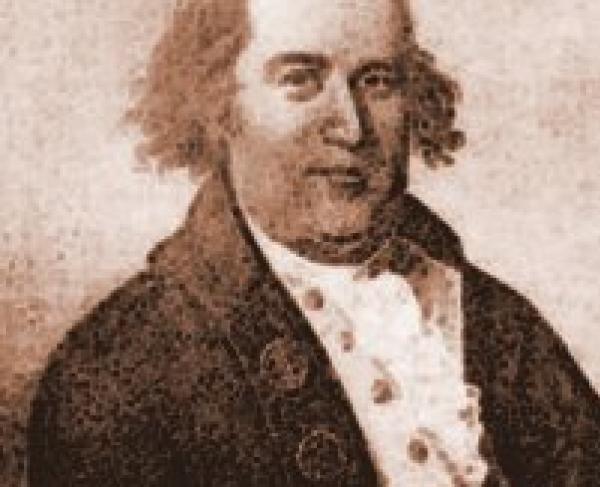William Dawes

One of the messengers who rode in the night of April 18,1775, to warn the Massachusetts countryside that a British expedition was heading for Concord, William Dawes has often been overshadowed in historical memory by Paul Revere.
Born on April 6, 1745, William Dawes Jr. was part of the fourth generation of his family to live in the British colonies, and he was baptized at Old South Church in Boston. He learned the tanning trade and joined a militia unit in Boston; in April 1768, he became an elected member of the Ancient and Honorable Artillery Company of Massachusetts and promoted to second sergeant four years later. Dawes married Mehitable May on May 3, 1768, and the couple had six children.
Dawes joined the Sons of Liberty, a group that protested British taxes. He stole cannons guarded by a British grenadier, and he may have been instrumental in taking some of Boston’s cannon to Concord during the winter of 1775. When passing through British sentry lines, Dawes was known for his antics which sometimes included pretending to be drunk or wearing disguises. Dr. Joseph Warren who organized much of the spying and communication network for the Sons of Liberty trusted Dawes and sent him to carry messages.
On the night of April 18, 1775, Warren confirmed that a British expedition was leaving Boston and heading to Concord to search for cannons and other military supplies. Warren instructed William Dawes and Paul Revere—another messenger and member of the Sons of Liberty—to leave Boston, warn the countryside militia leaders, and alert Patriot leaders Samuel Adams and John Hancock in Lexington that British troops were looking for them, too. Dawes left the city via a narrow strip of land called the Boston Neck, just before British guards closed access to or from the city. Dawes route that night took him through the villages and towns of Roxbury, Brookline, Cambridge and Menotomy before he reached the more direct road to Lexington and Concord. Paul Revere left Boston by water and through Charlestown, taking a different route before arriving in Lexington. Both Dawes and Revere warned Adams and Hancock to find a different place of safety, and then both riders continued west together, heading for Concord and alerting militia leaders along the way. Samuel Prescott, a young doctor, met Dawes and Revere, riding with them and sharing the mission.
Before the three horsemen reached Concord, a British patrol ordered them to halt. The three messengers scattered. Prescott would escape and ride to Concord. Revere was quickly captured. Dawes—according to the stories he told his family—rode off into the darkness, followed by two British soldiers. He rode to a farmhouse and started shouting that he had found to British officers. To avoid capture, the British soldiers disappeared, leaving Dawes momentarily triumphant. Then, Dawes’s horse threw him off and ran into the darkness, leaving the rider to walk back to Lexington.
It is not known what Dawes did on April 19, 1775 during the Battles of Lexington and Concord and the retreat of the British expedition, but his message that the Regulars were marching had aroused the Massachusetts countryside and sparked a revolution. During the American Revolution, Dawes served in Massachusetts units. In June 1775, he fought in the Battle of Bunker Hill. He was commissioned as a major in September 1776 and worked as a quartermaster.
After the end of the Revolutionary War, Dawes continued to reside in Massachusetts. In 1790, he refused to join a militia action against Native Americans. His wife Mehitable died in 1794; two years later, Dawes married Lydia Gendall, and they had one child. William Dawes died on February 25, 1799; he is buried in either King’s Chapel Burying Ground or Forest Hills Cemetery.
Though overshadowed in popular poetry and historical memory by Paul Revere, William Dawes had an important ride in the night of April 18, 1775 too. In 1896 a parody poem poked fun at Henry Wadsworth Longfellow’s famous piece “The Midnight Ride of Paul Revere” and offered instead “The Midnight Ride of William Dawes.” Poetically wondering how he had been forgotten, the poem included this stanza:
'Tis all very well for the children to hear
Of the midnight ride of Paul Revere;
But why should my name be quite forgot,
Who rode as boldly and well, God wot?
Why should I ask? The reason is clear --
My name was Dawes and his Revere.
"Dawes" may not have rhymed as nicely as "Revere" when it came to writing classic American poetry, but that does not detract from the courage and commitment William Dawes showed as he rode through the night, warning the countryside and patriot leaders that the British had left Boston and were heading for Concord.

